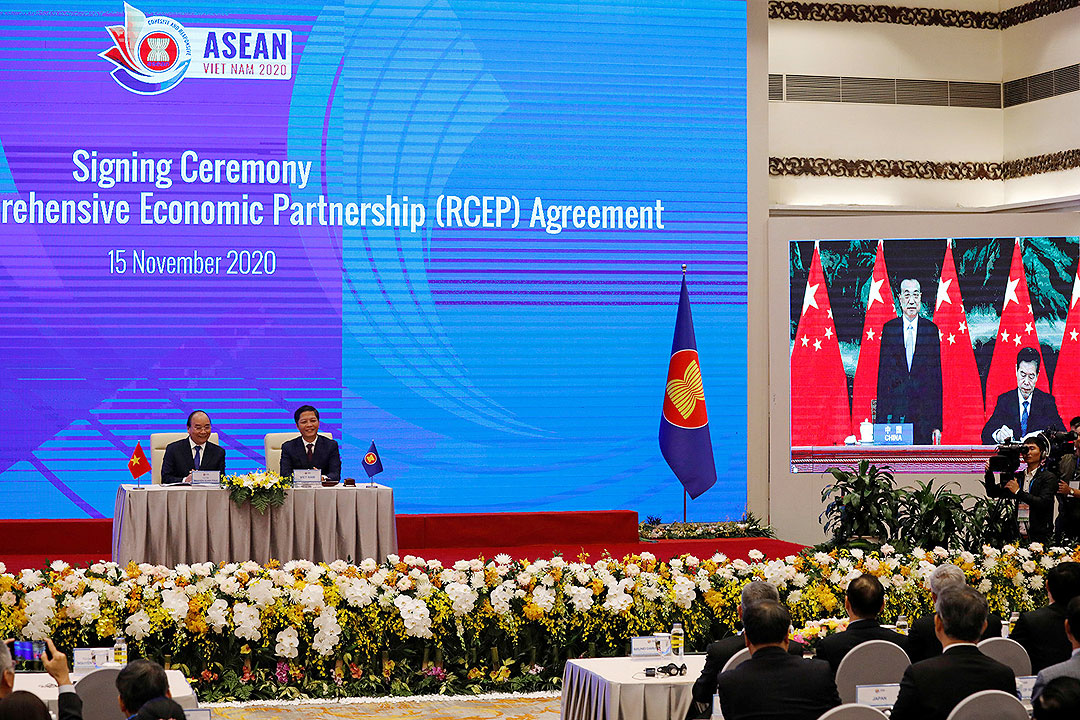
THE liberalization of trade resulting from participation in the Regional Comprehensive Economic Partnership (RCEP) is expected to affect only a limited number of agricultural commodities, the Department of Trade and Industry (DTI) said.
Trade Assistant Secretary Allan B. Gepty said in a statement on Thursday that the market opening RCEP calls for the additional liberalization of 33 tariff lines to four trade partners, with most other commodities already subject to other free trade agreements (FTAs).
“In RCEP, basically, the Philippines has only offered 33 agricultural tariff lines for further liberalization or improvement specifically for Australia, New Zealand, China, and South Korea… This is only equivalent to 1.9% of the total agricultural tariff lines. Out of these 33 agricultural tariff lines. Seventeen tariff lines are raw materials, 8 tariff lines are inputs, and only 8 tariff lines are final goods,” Mr. Gepty said.
The commodities opened up to more import competition include an offer to Australia and New Zealand of reduced tariffs for fish fillet products dried, salted or in brine but not smoked. The tariff on such products will fall to 0% after 15 years from the 5% stipulated in the ASEAN-Australia-New Zealand Free Trade Area (AANZFTA). Frozen mackerel tariffs will fall to 3% from 4% under AANZFTA. Celery tariffs will fall to 15% under RCEP from 16% in AANZFTA. Sausage tariffs will fall to 23% from 32%.
“We really ask the agricultural sector to look at RCEP as a platform of more and bigger opportunities ranging from improved market access in the RCEP region, cheaper access to raw materials, wider cumulation area, trade facilitative measures, and even investments in smart agriculture and research and development,” he added.
Mr. Gepty said trade remedies are available in the form of an RCEP transitional safeguard, on top of the mechanisms available via the World Trade Organization (WTO).
“There may be cases wherein commitments made in the RCEP Agreement need to be adjusted or addressed due to exceptional circumstances that affect our economy and industries, as well as our farmers. For this reason, the RCEP agreement provides various mechanisms that serve as safety nets to address these circumstances. These are on top of the available remedies under the WTO agreements,” Mr. Gepty said.
RCEP, which started taking effect on Jan. 1, involves Australia, China, Japan, South Korea, New Zealand and the 10 members of the ASEAN.
The Philippines has yet to enter RCEP as the Senate was unable to ratify the agreement before adjourning on Feb. 3. President Rodrigo R. Duterte signed the trade agreement on Sept. 2. — Revin Mikhael D. Ochave



